“Times of transition are strenuous, but I love them. They are an opportunity to purge, rethink priorities, and be intentional about new habits. We can make our new normal any way we want.” Kristin Armstrong
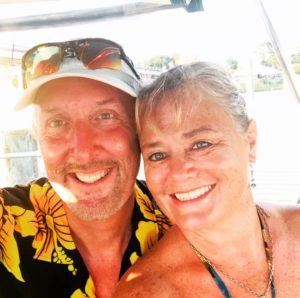
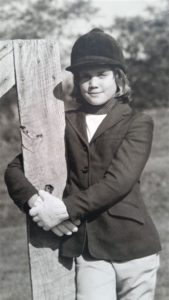
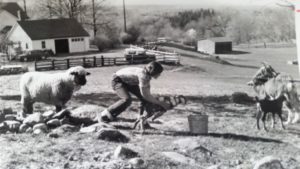
Who could have guessed that a random thought from my childhood would become a reality? What are the chances of meeting someone who shared that dream? Even more of a longshot is actually pursuing that dream. The figures are rather staggering: only 10% of the people who buy a boat with the intention of sailing around the world untie those bow lines and undertake that journey.
None of this would have come to fruition had it not been for one sailing family that came into our lives and introduced me to the world of sailing. The Knight family brought us on our first Caribbean sailboat vacation when I was 11. Five years later, I would find myself moving off the farm in NY and to Charlotte, NC where Carl Knight resumed competitive sailing on Lake Norman. Through Carl’s tutelage, hook, line, and spinnaker, I fell in love with the thrill of racing. I finally got to experience that childhood dream of understanding how to harness and controlling the wind.
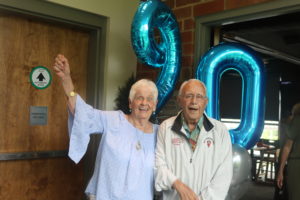
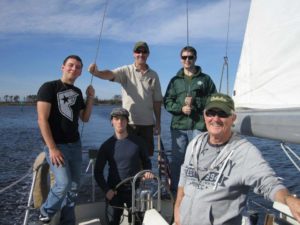
All of this self-reflection and flashbacks have come to light lately for me. Instead of this blog being about recent adventures traveling through Spain, I needed to remind myself that this was my dream, and now I am living it. There are many things I’ve had to give up in order to live this dream. Some are easier than others. The hardest is not being a part of my children’s lives and missing my grandchildren.

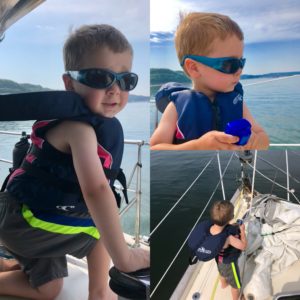
Here are the top ways I feel I have adapted, re-prioritized, or completely changed as a result of living on an ocean-going vessel. Going from life on a farm to life on a boat has forced a new normal. When putting down in black and white and contemplating these changes, I realize how much this change of life has transformation me.
Uncluttering
When we made the final move from our house to our boat, blog post ‘Light at the End of the Tunnel‘ we had a pick-up truck and a car full of stuff to move onto the boat that we thought we couldn’t do without. We had scaled 30 years of possessions from our farm to just a car and truck. That was progress. It wasn’t nearly enough.
Every cabinet and space in the bilge was jam packed. What we couldn’t fit on the boat had to go. I parted with ‘things’ I thought I would miss. Four years later? I can’t even remember what they were. About every six months, we go through everything. If we haven’t used it in a year, off the boat it goes.
I can now close our cabinets easily. There is now breathing room and space to organize what we do have. It’s so liberating to be free of clutter. There is no temptation to spend money on things we don’t really need. And if we do buy something, it is a necessity.
Shopping Appreciation
I hated grocery shopping with a passion. Now, I when I see a grocery store, even if I don’t need anything I go in “just for fun”. I remember the days of strolling down a grocery isle pushing a cart and throwing any and all items that I deemed interesting. Now, my shopping trips are limited to what I can fit into one hand held basket. I can only buy what I can carry back to the boat.
There are even times when I have to go back and start returning items to the shelves because I found other items that I wanted more. Sometimes I cheat and tuck a few things under my arm that won’t fit in the basket. It always gets me in trouble when it comes to carrying those things back to the boat.
Boat Cooking
Meals are easy to plan when you can run to the grocery store and you have cabinets and a fridge and freezer full of ingredients. Don’t feel like cooking? Let’s go out to eat. Take away those givens, and having to cook on a moving platform, meal preparation becomes much more challenging. I used to hate cooking. Now, it is one of my main challenges in life.
Provisioning is an art form. Learning to prepare meals with limited ingredients spurs creativity. I have learned to cultivate and create with sourdough. Being able to make everything from biscuits to pizza crusts, breads and desserts, is a skill I never had before I lived on a boat.
Sometimes, I go to prepare dinner and I have absolutely no idea what I am going to make. I open my fridge, look inside, and wait for inspiration. Once, I pulled out a huge carrot. I stared at that carrot. Before long, I had onions, veggies, and that big carrot simmering in coconut milk and seasonings. That night we had a delicious coconut, ginger, curry over rice. I have learned how to reverse engineer cooking. I start with one thing I have in my fridge and envision how to build a meal.
Living with No Luxuries
Standing every morning under a hot shower was always the best part of my day on land. We showered every day, sometime twice a day. Luxuries such as these are a thing of the past.
At the moment, our water maker is broken. The pump finally went. It costs thousands of dollars to replace it. Until we can replace it, we now rely on filling our water tanks at a marina. Water rationing is a must since we never know when we will be at our next marina.
When we shower, usually a couple of times a week, it’s very quick. You turn on the water and get wet. You turn off the water and soap up. Then, you take a quick rinse. Those few seconds under the hot water are blissful. I don’t take one drop of water for granted.
Washing dishes is a tricky business. The main goal is to get the dishes clean using the least amount of water. Sometimes, I have to scrub a pot in salt water than rinse in fresh water just so I don’t waste too much water in the washing process. Letting water flow freely from a tap is a luxury we no longer can afford.
Laundry. Days of taking off our clothes at the end of the day and throwing the in the hamper are no longer. Clothes only go in the hamper when they can’t be worn any longer. Finding a washer and dryer and doing laundry is no longer a chore, it’s an entire day’s activity. There is much rejoicing when we have a pile of freshly laundered clothes and a set of clean sheets on the bed.
Using anything that requires electricity is a luxury, not a right, when you live on a boat. While we have wind and solar, and a generator, we have to be conscious of anything we plug in to charge. Our fridge and freezer take up much of the energy we generate. The electronics that run our auto pilot, radar, radio, chart plotter, take up the rest. If we don’t have wind or sun, we can use our generator but that burns our fuel. It’s a special night when we watch a movie or t.v. show we have stored on our hard drive as turning on the television means not charging something else.
How do we get internet? One of our most common questions. Dan has Google Fi which is a global cellular plan. I have T Mobile that provides me with spotty data internationally. If we are within 5 miles of the coastline, we usually can find a semblance of reception. We often are in remote harbors with no reception.
What we do have is a Wi-Fi optimizer on our boat. If we can find a Wi-Fi password within two miles of our boat, the optimizer will pick up the signal. Our boat is networked so all our devices can access the internet through that Wi-Fi. Sometimes, we have to be ingenious on how we procure passwords. This might mean a trip to a bar or restaurant just to get the passwords. We never take a good signal for granted as this is our only opportunity to upload blog posts and our video blogs.
Being Self-Sufficient
There are tons of topics I could elaborate on when it comes to lifestyle changes when living on a boat. I think the most important is learning how to be self-sufficient. When things break, things go wrong, and you find yourself without whatever it is you need, there is no where to turn but back to your own resourcefulness.
Dan has a built up a wide array of repair supplies and tools. He can fix almost anything that breaks. I have learned how to sew. I wouldn’t even sew on Boy Scout patches when I lived on the farm. I used iron-on-tape to hem pants. I considered myself sewing challenged. Now, I have fabricated items that I wouldn’t have considered attempting in my previous life. I have repaired our sails several times.
I have made everything from dinghy covers, sail covers, bags, tool bags, hatch covers, engine covers, and countless items that are useful in our daily lives and serve a purpose. I learned how to sew by having a man teach me how to make the bimini for our cockpit. It would have cost $8,000 to have it made. It was my first project and as the man promised, “If you learn how to make this, there is nothing you won’t be able to sew.”
Learning to Lean
Life on a boat is about balance. People ask us what we do for exercise. Spend a day on a rough sea and you will see how many muscles it takes to keep your body balanced all day. You use your core and all your muscles to move, to sit, to stand, even to sleep on a rolling platform. We do plenty of walking and bike riding when we get off the boat, so exercise is not a problem. It’s the mental game that takes the most work to balance.
Life on a boat can be lonely. You have to rely on your partner. You have to know when to lean on him or her, and when they need a helping hand. Finding that balance is learning how to read emotions. You have to be able to prop your partner up when they need it and find those words of encouragement when things get tough. The emotional component is huge. I used to be a fan of keeping my feelings in check, to myself, and dealing with them on my own. That is not a luxury I can afford. There is no where to run, no activity off the boat to vent those frustrations. A boat is closed ecosystem most of the time. Learning to lean when you need it, and be supportive when it is needed, is crucial.
That being said, sharing my stories and adventures with all of you is one of my coping mechanisms. I love the support, positive comments, and feedback I get from you. It makes me feel a little less alone in this big world. If I can share a story, photo, or talk about an adventure and it makes you smile, or brings you joy, I share in that feeling.
My favorite part of life on land was being a teacher, a coach, a friend, and interacting with people. I don’t get to do that much now which is a big adjustment for me. Thank you for being one of the people who has taken the time to read this. It helps us knowing we are being supported from afar. Now that I have shared all the ways I have adapted and changed to live aboard a boat, also know that our connection and love of family and friends will never change. You are our North Star. You are a distance beacon that guides us along our way. You will always be there to lead us home when this journey is completed.
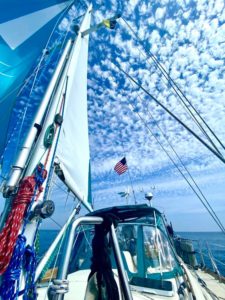
Leave me a comment if there is any topic you would like to know more about. Your input is always appreciated.
Fair Winds,
Alison and Dan
s/v Equus

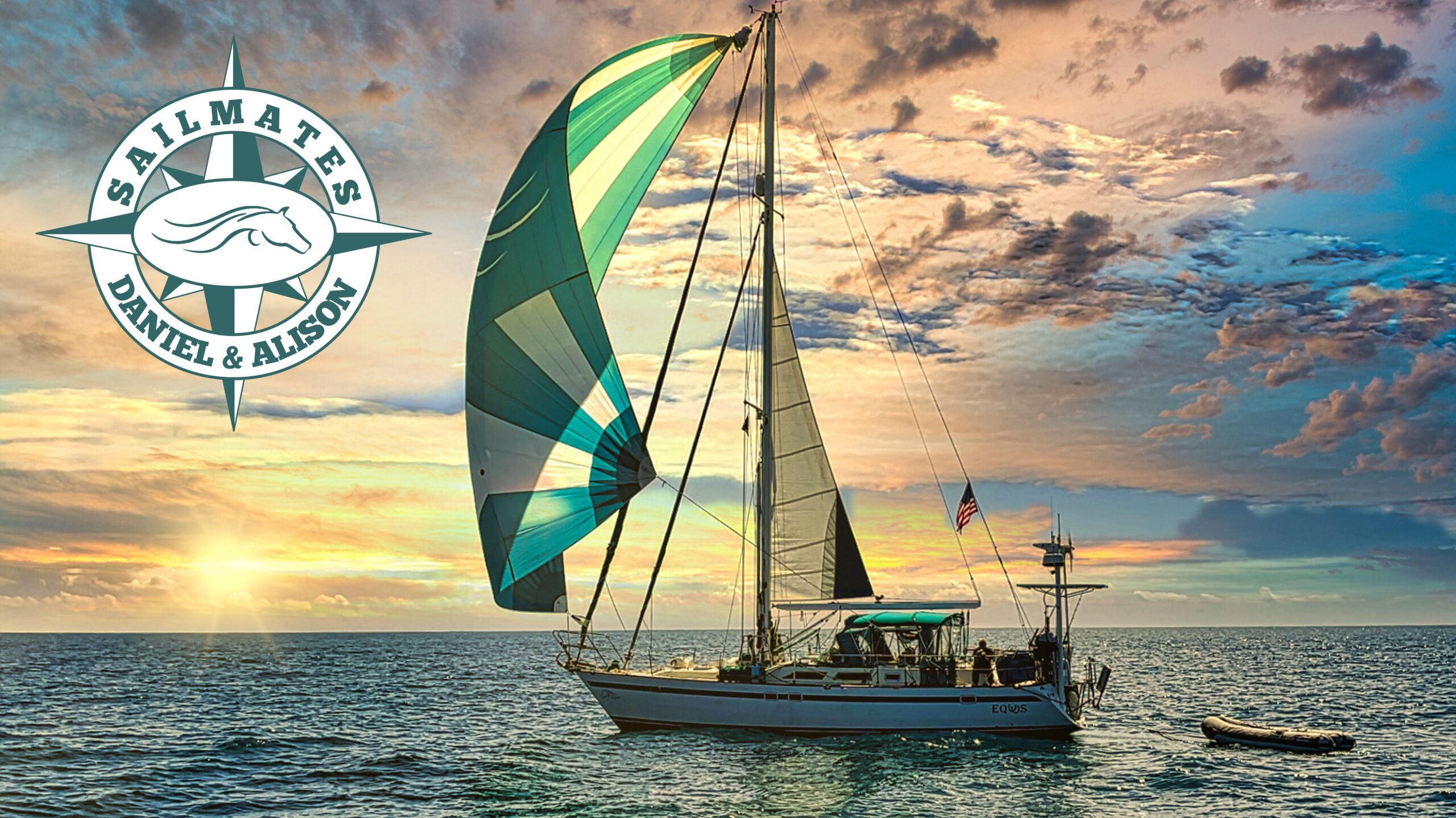
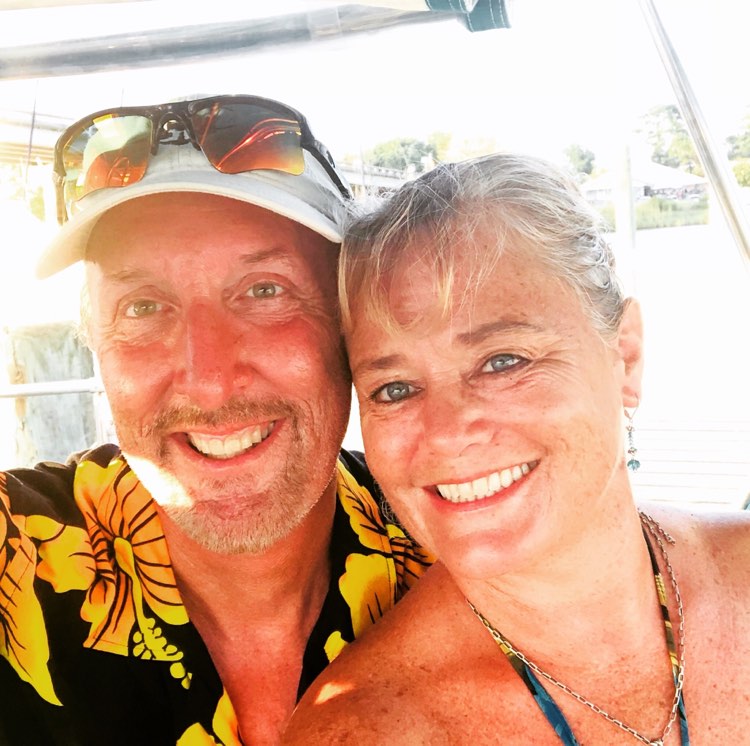
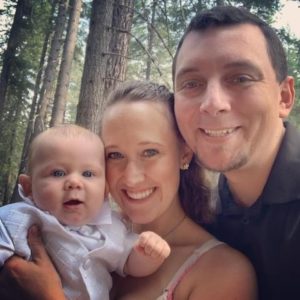
No significant input other than that I love your writing style. I could read it all day.
I just thought of a question: when do you have the opportunity to write?